The cellist of Duo Shum, Lisa Strauss speaks about how the etymology of the word ‘Shum’ helps inspire the ensemble to champion the works of mistreated Slavic composers

Discover more Featured Stories like this in The Strad Playing Hub
How was Duo Shum formed?
I met pianist Anastasia Rizikov at the Gautier Capuçon Foundation almost two years ago. We had an instant friendly as well as a musical connection, then very quickly we decided to play together. We both wanted to share our passion for Slavic composers and Eastern European folk music. This is how Duo Shum (шум. m. noise) was born.
Shum is a word that comes from Russian and Ukrainian languages that means noise and relates the best to our Slavic roots. It may be strange to call a musical duo ’noise’, but the word Shum reflects above all our strong personalities. First of all, we are two friends who like to laugh together. We both have fiery temperaments and are expressively showing our emotions.
We like to provoke our audiences and those around us by shaking up the codes of classical music, and by being a little disruptive in order to advance preconceived ideas. For example, we draw a lot of inspiration from cinema, photography and fashion. In fact, we made a film around the first Schnittke sonata directed by the short film maker, Julien Hanck, which is a unique and very innovative object in the world of classical music. We also worked with fashion designer Stéphanie Coudert who dressed us several times for our concerts.
Shum also refers to repertoire that we both want to defend: Slavic music of the 20th and 21st centuries, which was often considered by the Soviet regime as noisy and disturbing. Our album is therefore a tribute to these often mistreated composers, which is why we decided to call ourselves Shum.
’Shum’ refers to repertoire that we both want to defend: Slavic music of the 20th and 21st centuries, which was often considered by the Soviet regime as noisy and disturbing
What was your experience with the Gautier Capuçon Foundation?
The Gautier Capuçon Foundation, of which I have been a laureate for two years, has been a very important structure in accompanying the development of my career as a young musician. I joined the foundation after the Covid period, which was a very difficult time for most artists, particularly young ones. It was already difficult to convince concert halls to programme us and for us to find a label. Confinement greatly amplified all these difficulties. Within the foundation, I found support and real listening, and above all, the opportunity to play a lot of concerts, and to record our album. From the beginning, the foundation truly believed in our duo project and supported us along the whole process.
During my time there I was able explore and imagine a solo cello programme. It was a project that had been close to my heart for a long time, and I am very grateful that the foundation supported me in this very personal approach.
What made you choose the repertoire you recorded for this album?
The repertoire we wanted to record was a very natural choice. We wanted to highlight our love for Slavic cultures as a whole, highlighting their similarities but also their singularities. In different pieces of the album you will find great expressiveness typical of the Slavic character and the Balkan people.
We also studied by ourselves and did research for unexpected sounds in the piano and the cello, such as in Fazil Say’s Four Cities. This gives great breadth to both instruments. We have explored as many sound possibilities as possible.
What is your favourite work on the album and why?
If I had to choose one work on the album, it would be the first Schnittke sonata. This piece moved me deeply the first time I heard it. This is also the first piece that we worked together with Anastasia. The harmonies of the first and third movements are tortured, and the second movement makes me think of a chase against the devil. This piece is rarely performed in Europe, therefore as part of our drive to make Slavic music better known, we wanted it to feature prominently on the album.
Duo Shum’s album is out on 31 May 2024 on Warner Classics and Erato. Watch Duo Shum perform ‘Vocalise’ by Rachmaninoff below:
Read: The Brodsky Quartet: how we prepare our Shostakovich string quartet cycle
Discover more Featured Stories like this in The Strad Playing Hub
The number one source for playing and teaching books, guides, CDs, calendars and back issues of the magazine.
In The Best of Technique you’ll discover the top playing tips of the world’s leading string players and teachers. It’s packed full of exercises for students, plus examples from the standard repertoire to show you how to integrate the technique into your playing.
The Strad’s Masterclass series brings together the finest string players with some of the greatest string works ever written. Always one of our most popular sections, Masterclass has been an invaluable aid to aspiring soloists, chamber musicians and string teachers since the 1990s.
American collector David L. Fulton amassed one of the 20th century’s finest collections of stringed instruments. This year’s calendar pays tribute to some of these priceless treasures, including Yehudi Menuhin’s celebrated ‘Lord Wilton’ Guarneri, the Carlo Bergonzi once played by Fritz Kreisler, and four instruments by Antonio Stradivari.

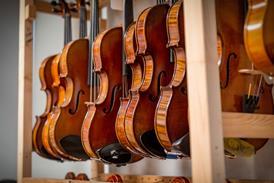
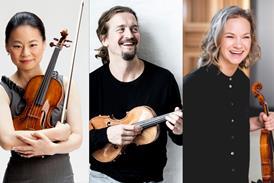
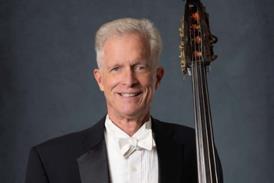
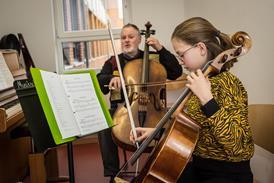

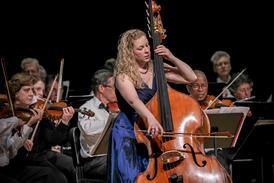

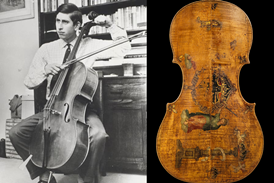
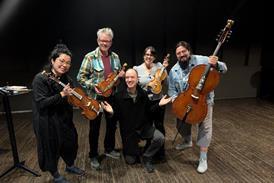
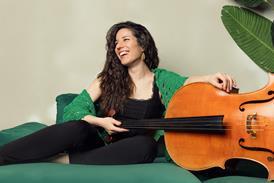
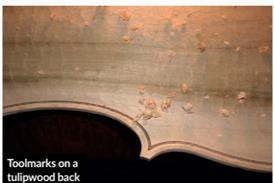
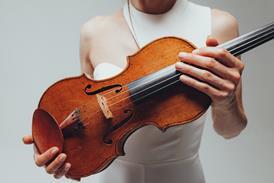
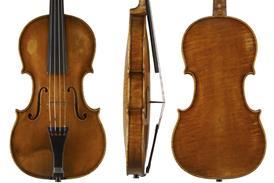























No comments yet